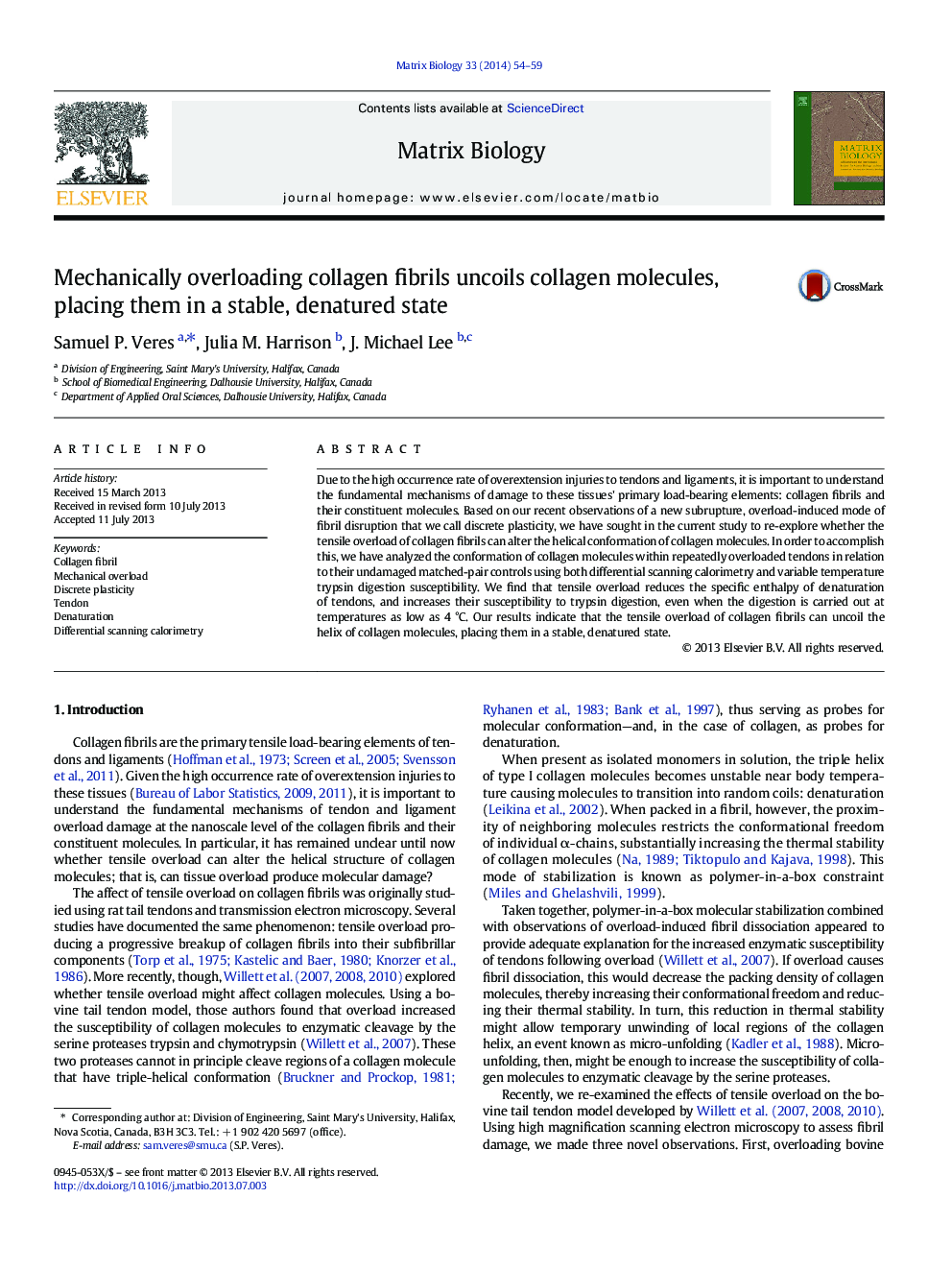| Article ID | Journal | Published Year | Pages | File Type |
|---|---|---|---|---|
| 8455503 | Matrix Biology | 2014 | 6 Pages |
Abstract
Due to the high occurrence rate of overextension injuries to tendons and ligaments, it is important to understand the fundamental mechanisms of damage to these tissues' primary load-bearing elements: collagen fibrils and their constituent molecules. Based on our recent observations of a new subrupture, overload-induced mode of fibril disruption that we call discrete plasticity, we have sought in the current study to re-explore whether the tensile overload of collagen fibrils can alter the helical conformation of collagen molecules. In order to accomplish this, we have analyzed the conformation of collagen molecules within repeatedly overloaded tendons in relation to their undamaged matched-pair controls using both differential scanning calorimetry and variable temperature trypsin digestion susceptibility. We find that tensile overload reduces the specific enthalpy of denaturation of tendons, and increases their susceptibility to trypsin digestion, even when the digestion is carried out at temperatures as low as 4 °C. Our results indicate that the tensile overload of collagen fibrils can uncoil the helix of collagen molecules, placing them in a stable, denatured state.
Related Topics
Life Sciences
Biochemistry, Genetics and Molecular Biology
Cancer Research
Authors
Samuel P. Veres, Julia M. Harrison, J. Michael Lee,
